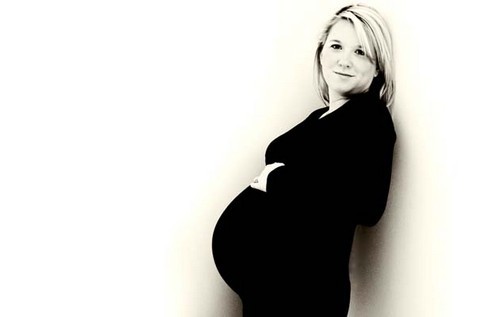Every pregnant woman is very attentive to her body and any changes can become a cause for panic. Especially often this happens when the abdomen lowers before childbirth. A woman can consider that there are only a few days left before the baby appears. However, this is not the case.
Why it happens?
Many gynecologists call prolapse of the abdomen one of the first signs of the approach of childbirth. The fact is that the growing fetus rises higher with each new week, reaching the diaphragm of a woman as she grows. At this point, the pregnant woman feels constant heartburn, shortness of breath appears.
When the fetus reaches a certain size, and the bottom of the uterus is in close proximity to the diaphragm, the body begins to lower the uterus into the small pelvis. This is the omission of the abdomen before childbirth.
How long does omission occur?
It is difficult to answer the question of when lowering the abdomen before childbirth occurs.
For each woman, this happens differently and depends on the following factors:
- physical condition of a woman;
- muscle development of the peritoneum;
- fetal weight;
- first pregnancy or subsequent;
- nature of presentation;
- number of fruits;
- health status of a woman.
As noted by gynecologists, prolapse of the abdomen more often occurs at a period of 36-38 weeks. But in many cases, the uterus changes its position closer to 40 weeks.
If the pregnancy is repeated, then the uterus is lowered into the pelvis 5-8 days before birth. Also, late prolapse is characteristic of strong women with a well-developed abdominal wall.

Is abdominal prolapse a sign of imminent labor?
If a woman notices that the location of the abdomen has changed, as well as accompanying signs, then you do not need to panic and worry that the birth will begin earlier than the due date. A cause for concern is the leakage of amniotic fluid and the early discharge of cork mucus. The very omission of the abdomen before childbirth does not mean the imminent appearance of the baby – this is just the beginning of a new and last period of pregnancy.

It is worth noting that in many women the stomach does not fall at all, or this happens before the baby appears with the onset of labor. If a woman with a change in the location of the uterus began to worry about severe pain or unusual discharge, then it is worth visiting a doctor for an examination.
Signs of omission
Together with the external signs of abdominal prolapse, a woman notices other changes in the body:
- breathing becomes easier;
- ceases to pester heartburn and belching;
- back pain disappears, but appears in the legs or pelvic area;
- the gait changes – it becomes a “duck”;
- urge to urinate;
- urinary incontinence may appear;
- constipation intensifies.
Abdomen before childbirth can be seen with the naked eye, looking in the mirror. If a woman periodically watches the growth of the peritoneum, then she will surely notice changes.
Some tips
When the belly falls, the woman becomes a little easier. Shortness of breath and digestive problems disappear, the baby stops painfully resting on the ribs. But along with this there are other troubles described above. For example, many women are worried about urinary incontinence. With laughter or coughing, it becomes difficult to restrain oneself, which can cause complexes for a future mother. To prevent this from happening, it is worthwhile from the moment of omission to wear a gasket that will protect from possible troubles.
With the omission of the uterus, discharge from the genital tract often appears. They are considered normal if they do not have an unpleasant odor or a strange color. Normally, the allocation of a white, odorless shade does not cause discomfort. If deviations occur, then consult a doctor. The fact is that the penetration of infection is very dangerous for the fetus and this can happen at any time. The woman’s body is very susceptible to various viral and bacterial carriers, and with a change in the position of the uterus, the risk of infection increases significantly. Therefore, doctors recommend giving up sexual activity 2-3 weeks before the upcoming birth.
If prolapse of the abdomen before childbirth is accompanied by severe pain in the pubic and hip area, then bed rest is recommended. In this case, a woman needs to lie on her side – so the heaviness from the abdomen is transferred to the other side, giving the organs an opportunity to relax a bit.
It is very helpful to take baths with soothing herbs to relieve pain. Medicines in the form of tablets or ointments are usually ineffective and can only be used with the permission of the supervising doctor. Unpleasant sensations will pass without a trace immediately after the birth of the child.



